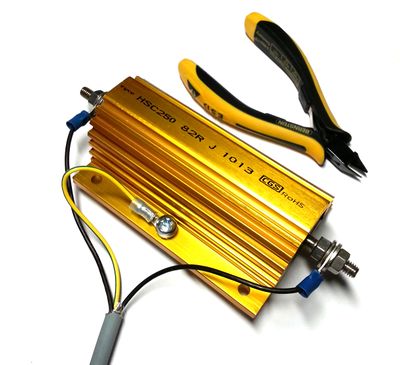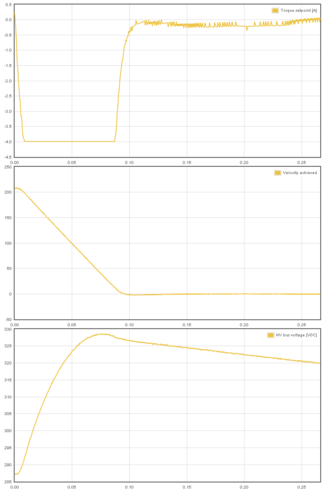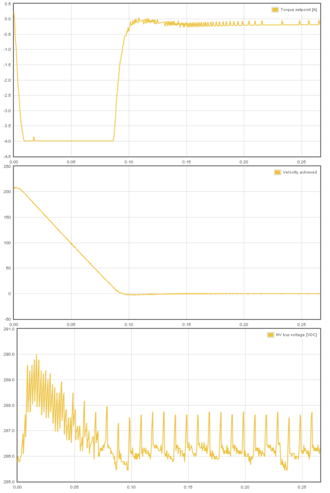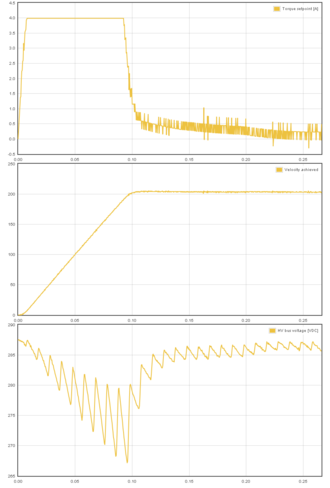Difference between revisions of "Regenerative resistor"
From Granite Devices Knowledge Wiki
| [checked revision] | [checked revision] |
| Line 6: | Line 6: | ||
==Overvoltage faults== | ==Overvoltage faults== | ||
| − | |||
| − | |||
Scenarios where returned energy is causing the rise of HV DC bus voltage: | Scenarios where returned energy is causing the rise of HV DC bus voltage: | ||
*Deceleration of motor speed when there is significant amount of energy stored in mechanical motion (rotating inertia or moving mass). This typically occurs with spindles and linear axes. | *Deceleration of motor speed when there is significant amount of energy stored in mechanical motion (rotating inertia or moving mass). This typically occurs with spindles and linear axes. | ||
| Line 19: | Line 17: | ||
==See also== | ==See also== | ||
| − | *[[Overvoltage and undervoltage faults]] | + | *[[Overvoltage and undervoltage faults]] - practical guide for sizing regenerative resistor |
[[Category:Glossary]] | [[Category:Glossary]] | ||
Revision as of 23:18, 23 July 2015
Regenerative resistors are usually a part with servo systems to absorb returned energy from decelerating or braking servo axis.Servo drive with motor can act two ways: energy supply and energy generator. The generator behavior occurs during decelerations and this causes current flow from motor to drive power supply capacitors. If that generated energy is not absorbed anywhere, the voltage of capacitors will rise above overvoltage threshold and trigger an software clearable overvoltage fault.
| In most installations braking resistor is not needed at all. Resistor is needed in cases where fast moving motor with high inertial load is stopped rapidly causing conversion of the kinetic energy into electric current which needs to be dissipated by a resistor. Experimenting without resistor is safe as drive's overvoltage protection will prevent any damage occurring. If drive faults to overvoltage fault during deceleration, then try adjusting FOV to higher value or add a braking resistor. |
Overvoltage faults
Scenarios where returned energy is causing the rise of HV DC bus voltage:
- Deceleration of motor speed when there is significant amount of energy stored in mechanical motion (rotating inertia or moving mass). This typically occurs with spindles and linear axes.
- Sudden reversal of torque setpoint. This can generate voltage spike even when motor is standing still. This typically occurs in high bandwidth torque control applications (such as Force feedback system (FFB)). These spikes are very short and an added capacitor to HV DC bus and/or low resistance regenerative resistor can provide a solution.
Voltage generation during deceleration of motor (motor current is negative, current is pumped to HV DC bus). However, in this case drive is equipped with regenerative resistor and tightly set FOV parameter which prevents the significant voltage rise (only 5 VDC rise).
See also
- Overvoltage and undervoltage faults - practical guide for sizing regenerative resistor



